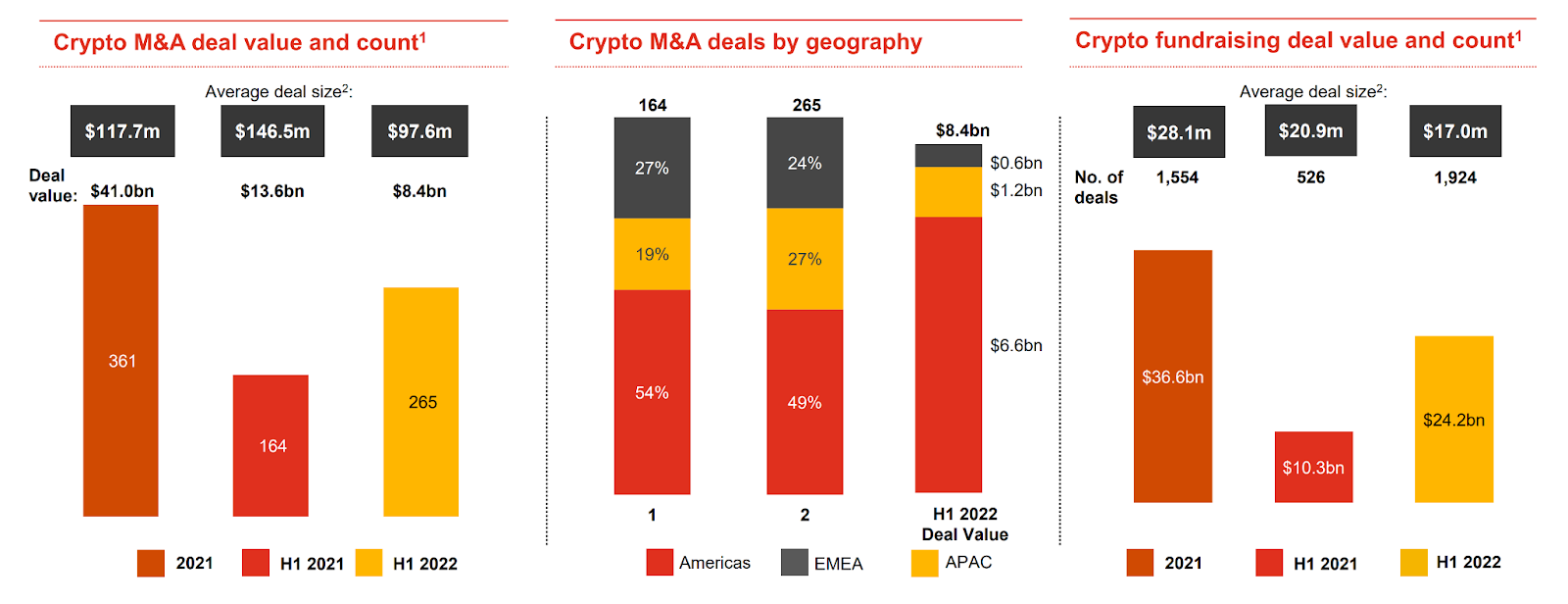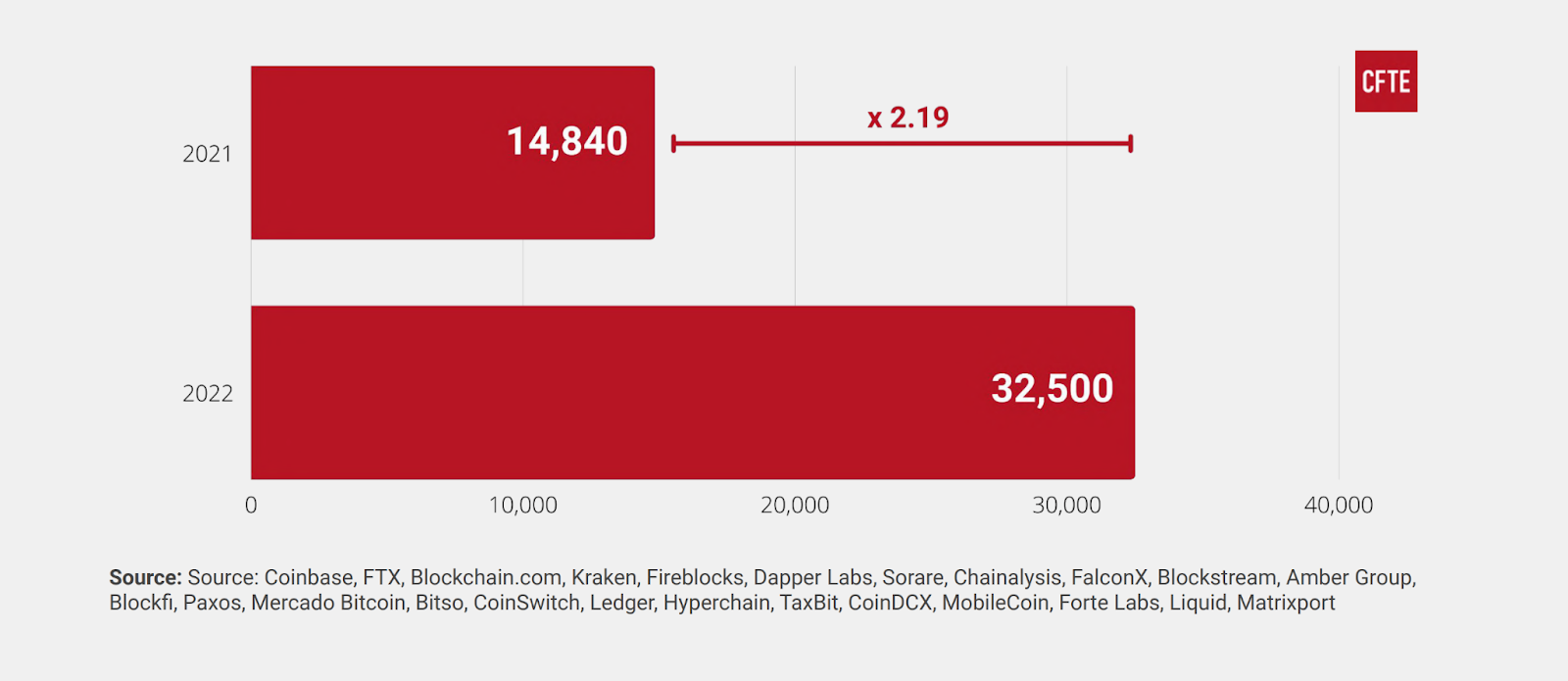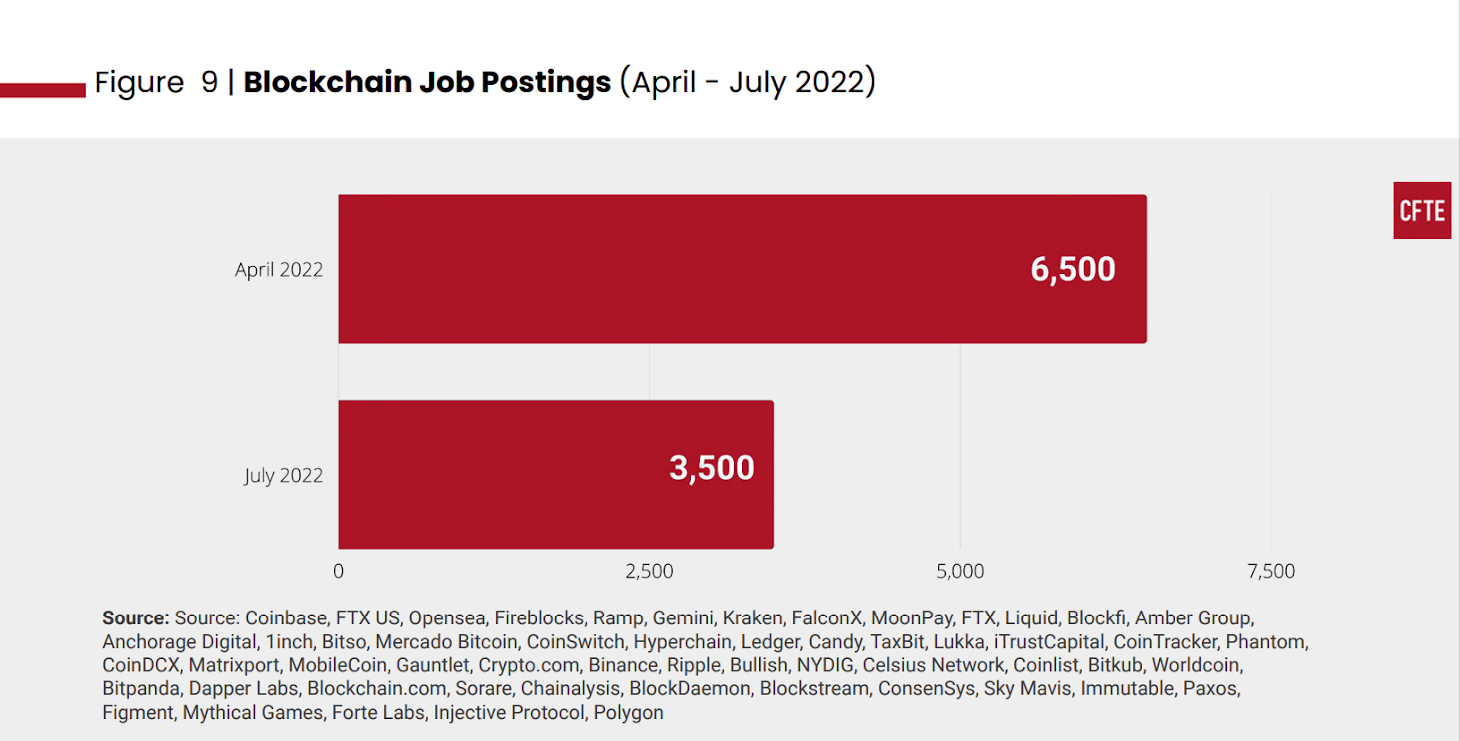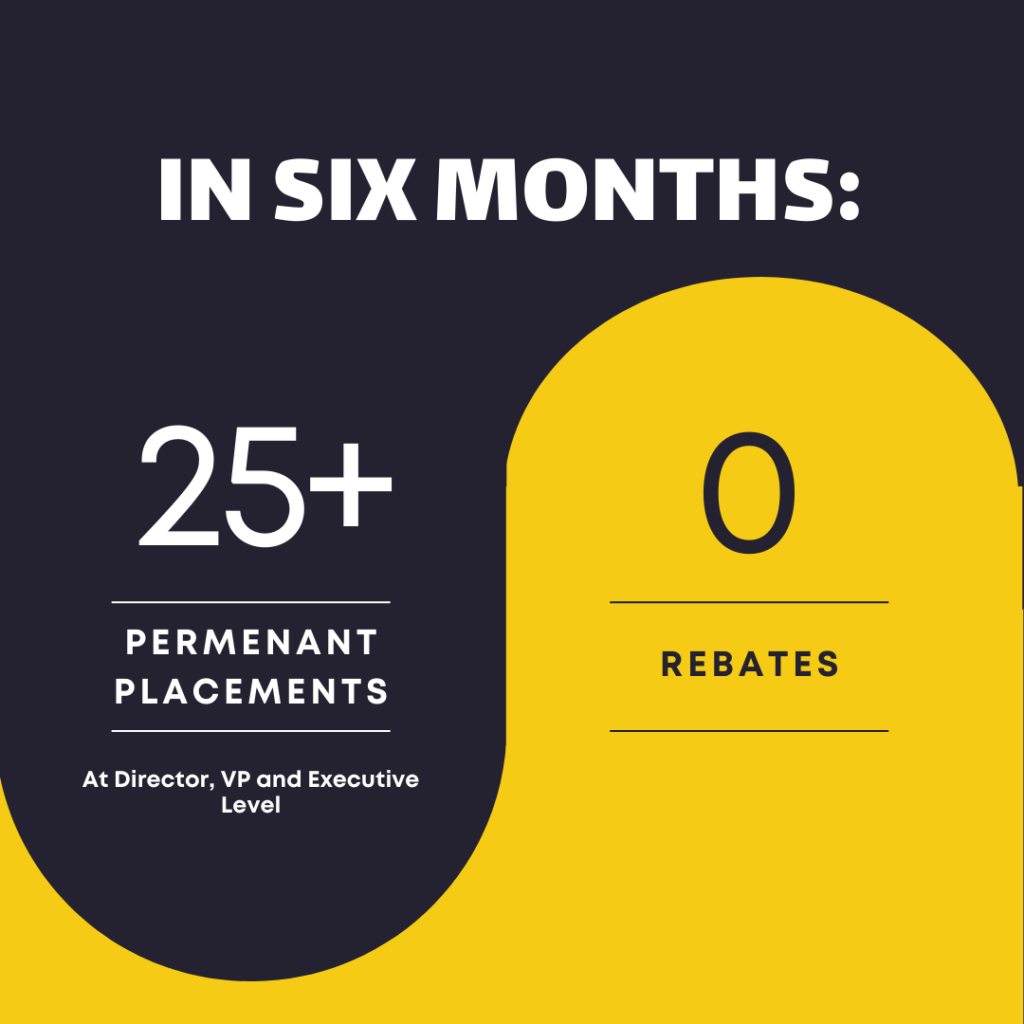50 Female Crypto, Blockchain, and Web3 leaders you should know
Written by Hugo LennardCryptocurrency has become one of the hottest topics of discussion in recent times. With the rise of blockchain technology and digital assets, companies are building new financial infrastructure and innovative blockchain platforms that look to usher in a new era of finance. Unfortunately, this industry has historically been male-dominated, with only a handful of women in leadership roles.
According to a recent report by CoinDesk, women make up 8.5% of the total cryptocurrency workforce, which is much lower than the global average of women in the technology industry. However, there has been a significant increase in recent years, with the number of women in the industry nearly doubling since 2016.
In this report, we shine a spotlight on the women who are shaping the crypto, blockchain, and web3 industry. Despite the significant gender imbalance in the sector, with men often outnumbering women, these female leaders are making waves and driving change.
From founders and CEOs to developers and researchers, this report aims to showcase the diversity of talent and expertise among women in the industry, and to highlight the valuable contributions that they are making. By showcasing these female leaders, we hope to inspire and empower other women to pursue careers in the blockchain and cryptocurrency sector, creating a more inclusive and diverse industry in the process.
Below we have outlined 50 female crypto, blockchain, and web3 leaders that you should know..
Ophelia Snyder – Co-Founder & President – 21Shares
Ophelia Snyder is the President of crypto asset manager, 21Shares, which she co-founded in 2018. The firm offers a variety of products and services to both retail and institutional investors and raised funds last year that valued the firm at $2 billion. Prior to Co-Founding 21Shares, Ophelia worked in traditional finance at Evercore, UBS, and The Westly Group.
LinkedIn
Twitter
Professor Dawn Song – Chief Executive Officer and Founder – Oasis Labs
Professor Dawn Song is a professor in the Department of Electrical Engineering and Computer Science at the University of California at Berkeley. She is ranked the most cited scholar in computer security (AMiner Award) and is a serial entrepreneur, including Ensighta Security (acquired by FireEye Inc.) and Menlo Security. She obtained her PhD from UC Berkeley.
LinkedIn
Twitter
Kelly Loeffler – Co-Founder and ex Chief Executive Officer – Bakkt
Kelly Loeffler, an American businesswoman and politician, was the Chief Executive Officer and Co-Founder of Bakkt which has since been acquired by Intercontinental Exchange. She has since served as a United States senator for Georgia from 2020 to 2021. Prior to Co-Founding Bakkt, Kelly was Chief Communications and Marketing Officer at Intercontinental Exchange for 16 years.
LinkedIn
Twitter
Nathalie Oestmann – Chief Operating Officer – Outlier Ventures
Nathalie Oestmann is the Chief Operating Officer at Outlier Ventures, a firm that has been backing Web3 founders since 2014. Prior to joining Outlier Ventures, Nathalie was Chief Operating Officer at Curve, the high-growth UK FinTech. She currently serves as an Advisory Board Member for The Payments Association and started her career at Deloitte prior to spending 15 years in a variety of commercial positions at American Express. Nathalie has been included in various awards including Women In Fintech – The Standout 45 and Women in Fintech – Powerlist in 2016, 2017, and 2021.
Juliet Su – Fund Partner – NewTribe Capital
Juliet Su is a Fund Partner and Ecosystem Lead at NewTribe Capital, a Venture Capital firm based in Dubai. New Tribe Capital invests in early stage crypto and blockchain projects. Juliet refers to herself as a Technology Believer and a Desperate Dreamer. Today, NewTribe Capital has a portfolio of 185+ companies to date. The fund’s performance led to winning the ‘Best VC of the Year’ Award at the AIBC Summit Dubai in March 2022.
LinkedIn
Twitter
Isral McGinnis – Co-Founder & Chief Technology Officer – OAK Network
Isral McGinnis was a Co-Founder and Chief Technology Officer at OAK Network, a layer automation blockchain for DeFi and recurring payments across protocols. She led the engineering team through a period of growth at this San Francisco based startup backed by GSR, Greylock, and Electric Capital. Prior to Co-Founding OAK Network, Isral was an early engineer, technical leader and director of engineering at fintech company Blend through a high-growth period from Series B to Series E.
Sarah-Diane Eck – Founder – Lum Network
Sarah-Diane Eck is Founder and Chief Executive Officer of Lum Network, an open source protocol created in France in 2017. The Lum Network uses Cosmos SDK + Tendermint BFT blockchain technologies to introduce the first decentralised protocol for businesses to build authentic trust with their customers. Sarah-Diane first started her career at EY and moved into blockchain in 2016 – an early adopter.
LinkedIn
Twitter
Sophie Guibaud – Co-Founder and Chief Commercial & Growth Officer – Fiat Republic
Sophie Guibaud is currently Co-Founder and Chief Commercial and Growth Officer at Fiat Republic, a Banking-as-a-Service (BaaS) focused on simplifying Fiat flows for crypto companies. Prior to Fiat Republic, Sophie spent 10 years designing and executing the go to market of Banking-As-A-Service (BAAS) & Embedded Finance propositions in Europe including team and operation building.
LinkedIn
Twitter
Anitha Gopalan – Chief Financial Officer – Fireblocks
Anitha Gopalan is currently Chief Financial Officer at Fireblocks, the firm helping thousands of organisations securely mint, transfer, and store crypto. She has led Fireblocks through a tremendous growth period and $550m of fundraising. Prior to joining Fireblocks, Anitha worked at technology and healthcare companies like Rhapsody, Catalant Technologies, Rapid7, iPass, as well as big four accounting firm, Ernst & Young.
Jeanine Hightower-Sellitto- Chief Strategy Officer – EDX Markets
Jeanine Hightower-Sellitto is currently Chief Strategy Officer at EDX Markets, the scale-up crypto exchange backed by Charles Schwab, Citadel Securities, Fidelity Digital Assets, Paradigm, Sequoia Capital and Virtu Financial. Prior to joining EDX Markets, Jeanine was CEO at Atomyze and Managing Director at the well-backed and respected, Gemini. She moved into the crypto field after a stellar career in traditional finance at firms such as ISE Holdings.
Macrina Kgil – Chief Financial Officer – Blockchain.com
Macrina Kgil is a proven financial leader, having served as Chief Financial Officer for two multi-billion dollar companies prior to her current role as Chief Financial Officer of Blockchain.com. Under her steady hand and efficient management style, she time and again built agile teams that enable high-growth businesses to achieve successful exits. Born in Korea, Macrina started her career at PwC as an auditor and now lives in New York.
LinkedIn
Twitter
Maryam Ayati – Co-Founder – Watr Foundation & Komgo
Maryam Ayati is currently Co-Founder and Chief Executive of Watr Foundation, a blockchain protocol for real world assets and their financing. Prior to Co-Founding Watr, Maryam Co-Founded another successful blockchain company focused on trade finance, Komgo. Prior to entering the blockchain ecosystem, Maryam led and managed teams at Fortune 100’s.
LinkedIn
Twitter
Kathleen Breitman – Co-Founder – Tezos
Kathleen Breitman currently Co-Founder and Chief Executive Officer at Tezos, an open-source, Proof-of-Stake blockchain that can execute peer-to-peer transactions and serve as a platform for deploying smart contracts. Kathleen has extensive knowledge in Blockchain Technology and in 2014 alongside her husband released the white paper for Tezos. In 2017, Tezos raised $238m from notable investors including Boost VC, Dean Patrick , James Sowers, and Andreas Schwartz.
LinkedIn
Twitter
Emilie Choi – Vice President of Corporate and Business Development – Coinbase
Emilie Choi is President & Chief Operating Officer at Coinbase, she is also on the board of Okta, Inc. In her past career she held the position of Director-Digital Business Strategy & Operations at Warner Bros. Entertainment, Head-Corporate Development & Strategy at Yahoo, and Vice President-Corporate Development for LinkedIn..
LinkedIn
Twitter
Simone Maini – Chief Executive Officer – Elliptic
Simone Maini is a leading voice on financial crime prevention and compliance operations in the crypto asset community and has held the Chief Executive Officer title at Elliptic since 2020, she was Chief Operating Officer between 2016 – 2020. Prior to joining Elliptic, she held senior roles in investment banking, financial crime, and risk at Kroll and Deutsche Bank.
LinkedIn
Twitter
Noelle Acheson – Director of Research – CoinDesk
Noelle Anderson is a speaker, writer and researcher focussed on technology-based business models, with a focus on bitcoin, fintech and digital media. Noelle spent 5 years at Coindesk heading up their research function, since then she has spent some time at Genesis. Noelle started her career in finance in London, Toronto and Madrid, she set up the first online party goods distributor in Spain in 2000.
LinkedIn
Twitter
Caitlin Long – Founder and Chief Executive Officer – Custodia Bank
Caitlin Long is Founder & Chief Executive Officer of Custodia Bank and is a 22-year Wall Street veteran who has been active in bitcoin and blockchain since 2012. In 2018 she led the charge to make her native state of Wyoming an oasis for blockchain companies in the US, where she helped Wyoming enact 20 blockchain-enabling laws. Prior to moving into the crypto space, Caitlin spent several years working in traditional banking, running Morgan Stanley’s pension solutions business for 9 years.
LinkedIn
Twitter
Diana Biggs – Partner – 1k(x)
Diana Biggs is a Partner at 1k(x), the early-stage token fund specialised in ecosystem growth. Her main focus is on supporting the fund’s portfolio companies with institutional connectivity and growth. In addition to her role at 1k(x), Diana is an Associate Fellow with Saïd Business School, University of Oxford, where she guest lectures on digital assets and blockchain technology. Diana was previously Chief Strategy Officer of Valour, a publicly-traded company focused on crypto and web3. Prior to Valour, Diana was the first Global Head of Innovation for HSBC Private Banking.
LinkedIn
Twitter
Meltem Demirors – Chief Strategy Officer – CoinShares
Meltem Demirors is Chief Strategy Officer of CoinShares, a prominent investment firm in the digital assets space. Meltem oversees the firm’s managed strategies group and its New York office, and leads corporate development as a board director. Previously, she was part of the founding team of Digital Currency Group. She teaches at MIT and Oxford, and serves on the WEF Blockchain Council. Meltem leads CoinShares’ venture strategy and is an active angel investor, having invested in over 150 companies in the digital currency ecosystem since 2015. Prior to entering the crypto ecosystem, Meltem was a strategy consultant at Deloitte Consulting.
LinkedIn
Twitter
Sabrina Wilson – Chief Operating Officer – Copper.co
Sabrina Wilson is currently Chief Operating Officer at Copper.co, a prominent company in the digital asset ecosystem. She joined Copper.co in 2022 after an impressive career in Financial Services. She spent a lot of her career at Citi and Deutsche Bank where she was the Global co-Head of the Futures, OTC Clearing and FX Prime Brokerage business. In 2017, she was voted amongst the Top 100 Women in Finance (Europe) by Financial News.
Kathryn Haun – Founder – Haun Ventures
Kathryn Haun is Chief Executive Officer and Founder of Haun Ventures, a $1.5 billion venture capital fund focused on web3. Previously, she was a General Partner at Andreessen Horowitz, a Silicon Valley based venture capital firm and co-chaired its three crypto funds. She also serves on the Coinbase board, having joined as the company’s first independent director. Before becoming a venture capitalist, Kathryn spent a decade as a federal prosecutor with the U.S. Department of Justice, where she focused on fraud, cyber, and corporate crime.
LinkedIn
Twitter
Marieke Flament – Chief Executive Officer – NEAR Foundation
Marieke Flament is a Chief Executive Officer of NEAR Foundation, a non-profit foundation that is responsible for contracting protocol maintainers, funding ecosystem development, and shepherding core governance. Prior to joining NEAR, Marieke spent time at a diverse range of companies that include Mettle, Boston Consulting Group, and Circle where she was Managing Director of Europe and Global Chief Marketing Officer.
LinkedIn
Twitter
Elizabeth Stark – Chief Executive Officer and Founder – Lightning Labs
Elizabeth Stark is a blockchain entrepreneur, educator and lecturer in computer science at Yale University. In 2016, she founded Lightning Labs, a developer of the Lightning Network — a layer-two solution that seeks to combat the scalability issues within the Bitcoin network. Lightning Labs raised a $70m series B earlier this year.
Meirav Harel – Chief Operating Officer – XMANNA
Meirav Harel is Chief Operating Officer of XMANNA – XMANNA combines GameTech, AdTech and Fintech for a new type of fan engagement. Prior to XMANIA, she was Chief Operating Officer at Bancor. She has been chosen for “100 most inspirational women in Blockchain 2020”, chosen twice for “Women in Fintech Powerlist ” by Innovate Finance UK. She has over 20+ years of experience in Finance, Technology, and creating award-winning Fintech Innovation.
LinkedIn
Twitter
Galia Benartzi – Co-Founder – Bancor
Galia Benartzi is the Co-Founder of Bancor which was founded in 2017. The organisation raised $153 million through an Initial Coin Offering, and they have processed a billion and a half of conversions across 120 Ethereum-based currencies to date. Prior to Bancor, she was a Venture Partner at a well known VC and previously exited two tech startups, selling Mytopia to gaming giant 888 for $48 million dollars and Particle Code to Appcelerator.
LinkedIn
Twitter
Stephanie Ramezan – Head of UK – Gemini
Stephanie Ramezan joined Gemini in 2021 and is now Head of UK for the cryptocurrency giant that offers custody, trading, OTC, and other services to the retail and institutional market. Stepahnie was cited as one of the “Most-Influential Women in Blockchain” and nominated for the “Top 100 Women in Tech – Champion of Women Category, 2020”. Stephanie started her career at Bloomberg and has since held a variety of entrepreneurial roles.
LinkedIn
Twitter
Gracy Chen – Managing Director – Bitget
Gracy Chen is Managing Director of Bitget where she is responsible for growth and expansion of global markets, strategy, execution, business and corporate development. Gracy started her career as a TV Host and Producer and was Chief Marketing Officer at XRSPACE in China prior to joining Bitget. Up until 2021, Gracy spent 5 years as a Global Shaper for the World Economic Forum.
LinkedIn
Twitter
Gina Moon – General Counsel – OpenSea
Gina Moon is General Counsel at OpenSea, the world’s largest NFT explorer and web3 marketplace. During her tenure, she has built the legal, policy, government relations, and compliance teams. Prior to joining OpenSea, Gina was Associate General Counsel at Facebook, overseeing their Regulatory engagements and government investigations. Gina started her legal career in Private Practice at Gibson, Dunn & Crutcher LLP.
Lisa Loud – Co-Founder and Chief Executive Officer – FLUIDEFI
Lisa Loud is Co-Founder and Chief Executive Officer of FLUIDEFI, the cloud-based software as a service (SAAS) platform for investors & financial institutions. The platform allows customers to manage, transact, transfer, and track digital assets and digital asset pools. Lisa has been deeply involved in the crypto ecosystem since 2017 serving as Head of Marketing for BitMEX before joining ShapeShift as Chief Operating Officer in 2019. She started her career at Apple prior to Co-Founding her own firm and subsequently joining PayPal.
LinkedIn
Twitter
Alesia Haas – Chief Financial Officer – Coinbase
Alesia Haas has been Coinbase’s Chief Financial Officer since April 2018 and has seen the company through 4 funding rounds and their IPO in April 2021. Prior to joining, she served as the Chief Financial Officer for Sculptor Capital Management, Inc., a global institutional alternative asset manager. Alesia also sits on the board of ANGI Homeservices and Vimeo.
Kate Rouch – Chief Marketing Officer – Coinbase
Kate Rouch joined Coinbase as their Chief Marketing Officer in 2021. She oversees Coinbase’s global brand, product and performance marketing. She joined the crypto giant after more than a decade at Facebook, most recently serving as Global Head of Brand and Product Marketing for Instagram, WhatsApp, Messenger, Facebook app, Public Affairs and the Facebook company. At Facebook, Kate’s marketing teams were awarded with numerous awards, including two Silver Lions at Cannes.
LinkedIn
Twitter
Nancy Gordon – Chief Product Officer (Loyalty and Rewards) – Bakkt
Nancy Gordon has served as the Chief Product Officer for Loyalty & Rewards of Bakkt since March 2021. Most recently, she was Managing Director in Ernst & Young’s Financial Services Consulting practice, where she provided customer growth strategies for firms seeking innovative approaches to drive top-line growth and optimise operating efficiencies. Prior to working at Ernst & Young, Nancy led product development for Chase Ultimate Rewards and led data transformation initiatives across JPMorgan’s consumer banking, investment banking, wealth & asset management and corporate functions.
LinkedIn
Twitter
Laura Edelman – Global Head of Sales – Paradigm
Laura Edelman joined Paradigm, the largest institutional OTC liquidity network in crypto as the Global Head of Sales in 2021. She has been deeply involved in the crypto and blockchain ecosystem since 2019, in her previous role she was Head of Market Development at Bakkt. Before moving into crypto, she served in the traditional finance field at Intercontinental Exchange, SIX Financial Information, and BondEdge Solutions.
LinkedIn
Twitter
Jennifer Wilde Anderson – Co-Founder and Chief Operating Officer – Wave Financial
Jennifer Wilde Anderson is Co-Founder and Chief Operating Officer at Wave Financial. Wave Financial is an SEC registered investment adviser, managing over $1B in digital assets. Prior to joining Wave Financial, Jennifer was Chief Operating Officer at Wavemaker Partners, a venture fund focused on investing in seed and early-A investments in digital media and software companies
LinkedIn
Twitter
Catherine Coley – Former US Chief Executive Officer – Binance
Catherine Coley is the former Chief Executive Officer of Binance.US, she parted ways with the firm in June 2021. Prior to joining Binance, Catherine was Head of XRP Institutional Liquidity at Ripple. Prior to moving into crypto, she served as a foreign exchange and treasury management advisor after five years on trading floors as a foreign exchange associate at Morgan Stanley in Hong Kong and London. Fortune 40 Under 40 in Finance, 2020
LinkedIn
Twitter
Sonja Prstec – Head of Legal – Near Foundation
Sonja Prstec is currently Head of Legal at Near Foundation. Prior to joining Near, Sonja was Legal Counsel at Web3 Foundation and Chief Legal Officer at Bitnation. She has been in the crypto and blockchain ecosystem since 2017. She is skilled in European Law, Corporate Law, Civil Litigation, Contract Negotiation. Strong legal professional with diploma focused on challenging regulatory landscape.
Fran Kenck – Chief Regulatory Officer – Gemini
Fran Kenck is Chief Regulatory Officer at Gemini, the leading crypto company led by the Winklevoss twins. She moved into crypto in 2020 and spent the majority of her career working in traditional finance in a variety of Regulatory and Compliance roles at notable companies such as Tassat Group, trueEX, and Chicago Climate Exchange. She is a strong legal professional skilled in Regulatory Requirements, Risk Management, Derivatives, Commodity Markets, and Start-ups.
Jo Zhu – Partner, Crypto – a16z
Jo Zhu is currently a Partner at a16z crypto based in Santa Monica, she operates at the intersection of consumer and web3. Prior to joining a16z, she led Product at Uber, DoorDash, and Cameo – marketplaces that bridged the digital and the physical parts of people’s lives. Jo got into crypto when she used Bitcoin for cross-country currency transfer from Canada to the United States.
LinkedIn
Twitter
Helen Hai – Executive Vice President, Head of Global Fiat exchange – Binance
Helen Hai is Executive Vice President of Binance and has held a variety of positions at the crypto leader including Head of EU, UK and Africa region, Head of Global Fiat, P2P and Custody business, also Head of Binance Charity Foundation. Heleb was named a 2015 Global Young Leader by the World Economic Forum, and she is co-chair of the Global Future Council on the Future of Consumption for the World Economic Forum. She received the 2015 African Business Icon Award, and was awarded as Officer of the National Order of Lion of Senegal in 2016.
LinkedIn
Twitter
Mona El Isa – Co-Founder and Chief Executive Officer – Avantgarde Finance Ltd
Mona El Isa is the Co-founder and Chief Executive Officer of Avantgarde Finance Ltd, a DeFi Service for Treasury Management, Asset Management & Dapp Developers. Prior to Co-Founding Avantgarde Finance, Mona Co-Founded Melonport AG, a Decentralised Digital Asset Manager. She has been active in the crypto space in 2016. Prior to moving into the web3 world, she was a former star-trader at Goldman Sachs, promoted to Vice President by the age of 26 and made the “Top 30 under 30” list in Trader Magazine in 2008 and Forbes Magazine in 2011 after profitably trading the 2008 and 2011 crashes.
LinkedIn
Twitter
Eva Lawrence – Head of EMEA – Figment
Eva Lawrence is Head of EMEA at Figment, the firm that offers staking, middleware, and application layer solutions for investors and developers in web3. Prior to joining Figment, Eva was Chief Operating Officer at Arcane Crypto, a Nordic firm that develops and invests in digital asset products and businesses. She started her career in Traditional Finance at Merrill Lynch as a negotiator and then spent 8 years at Morgan Stanley where she was Head of Securities Lending Flow Trading for EMEA.
LinkedIn
Twitter
Sendi Young – Managing Director Europe – Ripple
Sendi Young joined Ripple, the crypto, blockchain, and payments business as their Managing Director overseeing their European efforts in June 2021. She joined Ripple following a five-year tenure at Mastercard, where she held leadership roles driving strategy, commercialisation, bank-fintech partnerships and business development. Sendi started her career with an Internship at Morgan Stanley before moving into the payments and fintech ecosystem.
LinkedIn
Twitter
Abigail Johnson – Chairman and Chief Executive Officer – Fidelity Investments
Abigail Johnson is one of the wealthiest, most powerful women in the United States, an American billionaire business who is currently the chairman and Chief Executive Officer of Fidelity Investments Despite Fidelity being a family-owned business, she worked her way up, joining Fidelity as an equity analyst in 1988. Abigail has been indirectly involved in crypto projects with the launch of Fidelity Digital Assets and their venture investments, notably their support for Coinmetrics where Fidelity joined the funding round alongside Coinbase, Castle Island Ventures and Highland Capital.
Amanda Fabiano – Head of Mining – Galaxy
Amanda Fabiano is Head of Mining at Galaxy and joined the firm from Fidelity where she was a senior program manager at Fidelity Investments’ Center for applied blockchain incubator. She began her career at Fidelity in October 2014 as a proposal indicator.
Eser Torun – Chief Growth Officer – Outlier Ventures
Esen Torun is currently Chief Growth Officer at Outlier Ventures where she is responsible for investor relations, business development, and fundraising along with other responsibilities at the crypto, web3, and blockchain accelerator. Prior to joining Outlier Ventures, Eser spent 4 years at Everledger, the blockchain supply chain platform where she held the Chief Growth Officer and Chief Of Staff responsibilities. Prior to moving into the crypto field, Eser spent 13 years at Barclays where she worked in Investment Banking after starting her career as an Associate at Citigroup.LinkedIn
Avery Akkineni – President – Vayner3
Avery Akkineni serves as the President of Vayner3, previously known as Vayne NFT, a company that employs 50+ Web3 experts, NFT enthusiasts, and blockchain believers. Prior to joining Vayner3, Avery was Head of VaynerMedia covering APAC as its Managing Director. She started her career as a team leader at Target before joining Google as an account manager before becoming a business manager.
LinkedIn
Twitter
Kristin Smith – Executive Director – Blockchain Association
Kristin Smith is the Executive Director of the Blockchain Association, the Washington DC-based trade association representing more than 90 of the industry’s leading companies. Kristin serves as a liaison between policymakers and the cryptocurrency industry to assist in the creation of legislation and regulation. Prior to leading the Blockchain Association, she helped blockchain and technology companies achieve their public policy objectives in Washington, serving as a Senate and congressional aide on Capitol Hill for nearly ten years, much of which was spent focusing on technology policy. Kristin is an advisor to multiple start-ups and serves on the board of Filecoin Foundation for the Decentralised Web and Skybridge Capital’s G and GII Funds.
LinkedIn
Twitter
Erin Brown – Chief Operating Officer – Galaxy
Erin Brown is currently Chief Operating Officer at Galaxy, formerly known as Galaxy Digital, the US crypto giant operates across Trading, Asset Management, Principal Investments, Investment Banking, and Mining. Erin is a seasoned executive with significant experience in treasury, risk and trading operations. Prior to joining Galaxy, Erin was Chief Risk Officer at Jump Trading and Head of Global Treasury and Operations at DRW. She started her career at Citadel in 2001 as a Treasury Analyst covering Global Energy and Credit.
Kristina Campbell – Chief Financial Officer – Ripple
Kristina Campbell joined Ripple, the firm best known for its global payments network that serves 40+ countries as its Chief Financial Officer in April 2021. She was bought in to drive Ripple’s financial strategy, accelerate growth, and deliver value to shareholders. She most recently served as Chief Financial Officer at PayNearMe and previously held multiple positions at Green Dot such as General Manager GoBank and Vice President Operations . Kristina started her career as an Associate at Citigroup.
LinkedIn
Twitter
Stella Dyer – Co-Founder and Chief Executive Officer – Millicent Labs
Stella Dyer is an award-winning senior executive and entrepreneur. Prior Co-Founding Millicent Labs, she spent the majority of her career at the forefront of global finance, including C-Level positions at multi-billion dollar private equity firms. Stella has worked at JP Morgan and Morgan Stanley – where she first gained exposure to the tech industry as an investment banker, and then at Goldman Sachs, as Business Unit Manager for the Global High Technology Investment Banking Group. Early in her career, as a petroleum geologist, she led the initial discovery of a substantial oil bearing horizon in the province of Alberta, Canada, an initial discovery of 250 million barrels of recoverable oil, ultimately exceeding 1 billion barrels.











